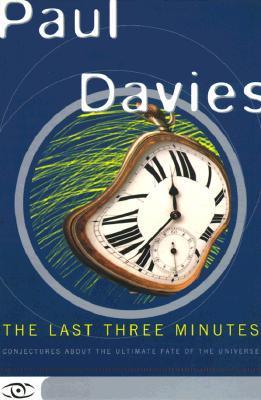
The End of Time: The Next Revolution in Our Understanding of the Universe
Book Description
Time is a fleeting illusion, a construct that shapes our very existence. Yet, what if everything we believe about it is wrong? Julian Barbour embarks on an exhilarating journey through the cosmos, unearthing a radical vision that challenges the very fabric of reality. With each turn of the page, theories blend and collide, revealing a breathtaking new understanding of the universe. As the pulse of modern physics resonates with ancient philosophy, readers are left to confront a thrilling question: can humanity unlock the secrets that lie beyond the confines of time itself?
Quick Book Summary
In "The End of Time," Julian Barbour presents a radical reimagining of what we perceive as time, arguing that time is not a fundamental part of reality but an illusion arising from change. Drawing on quantum physics, relativity, and the philosophy of science, Barbour invites readers to consider a universe made up of "Nows," timeless configurations that exist outside of the flow we typically associate with time. He explores the deep questions posed by modern cosmology, challenges the temporal assumptions in Einstein’s theories, and draws on historical perspectives to illustrate how a timeless view may unlock deeper insights about reality. By connecting physics with philosophy, Barbour sketches a universe where the apparent passage of time is a human construct and encourages us to rethink our most basic assumptions about existence.
Summary of Key Ideas
Table of Contents
The Illusory Nature of Time
Julian Barbour introduces the bold premise that time, rather than being a backdrop against which events unfold, is an emergent illusion from the dynamics of matter. He argues that every aspect of what we experience as time—past, present, and future—is simply a series of configurations, or “Nows,” each existing independently. Our sense of passage is a psychological effect resulting from the presence of correlations and memory within these Nows. Barbour contends that clinging to the flow of time holds back our understanding of the universe's true nature.
Physics Beyond Time: Nows and Configurations
Barbour navigates through developments in physics, including Einstein’s relativity and quantum theory, which inadvertently challenge the traditional notion of time. He points out inconsistencies and paradoxes, such as the "problem of time" in quantum gravity, where no absolute time exists at the fundamental level. By proposing that physics functions more coherently without privileging time as a basis, Barbour advocates for a paradigm shift where the laws of physics describe changes between static arrangements, not events unfolding in time.
Historical and Philosophical Perspectives on Time
The narrative draws on historical dialogues, from Plato and Newton to Mach and Einstein, showing how perspectives on time have shifted. Barbour explores how philosophical debates about absolute versus relational time influenced scientific thought, culminating in a rich tradition that questions time’s fundamental status. This historical context is essential for appreciating why abandoning absolute time is both revolutionary and grounded in long-standing inquiry.
Quantum Theory and the Problem of Time
Quantum mechanics, especially when considered alongside general relativity, highlights the incompatibility of using time as a universal parameter. Barbour details how quantum theory, at its most fundamental level, points to timeless equations, suggesting that our perceived flow of time emerges from entanglement and correlations between subsystems in the universe, not from a fundamental clock. This insight challenges not only physicists but also philosophers and neurologists to reconsider the architecture of reality and consciousness.
Implications for Reality and the Human Experience
Finally, Barbour discusses the broader implications of a timeless universe. Accepting the end of time transforms how we understand causality, the persistence of objects, and the nature of memory. It prompts us to see our lives as embedded in a complex set of interrelated “Nows.” By letting go of time as an essential element, we gain a new perspective that may help solve lingering puzzles in cosmology and challenge our deepest intuitions about existence, making this vision both scientifically provocative and existentially profound.
Download This Summary
Get a free PDF of this summary instantly — no email required.





